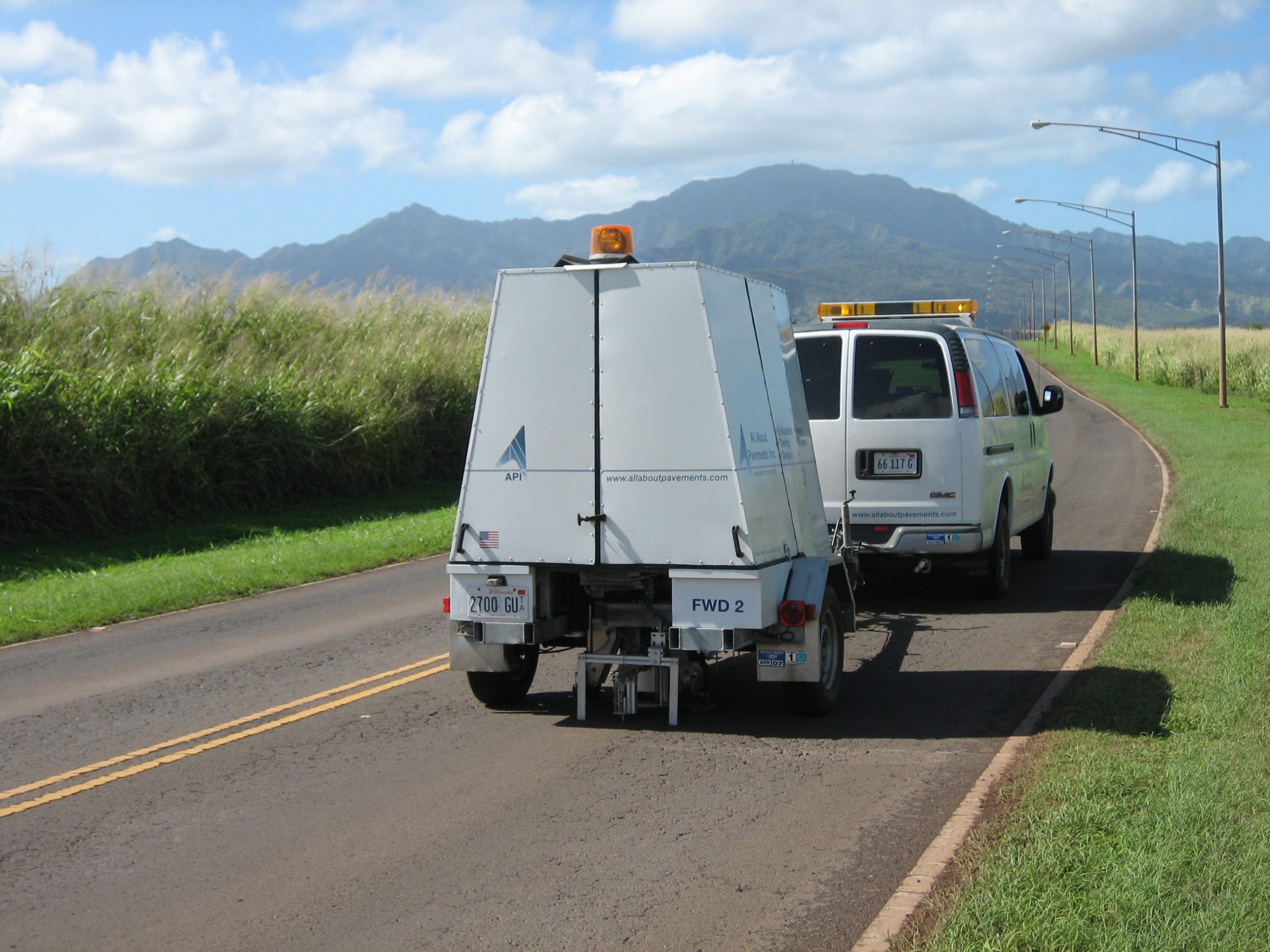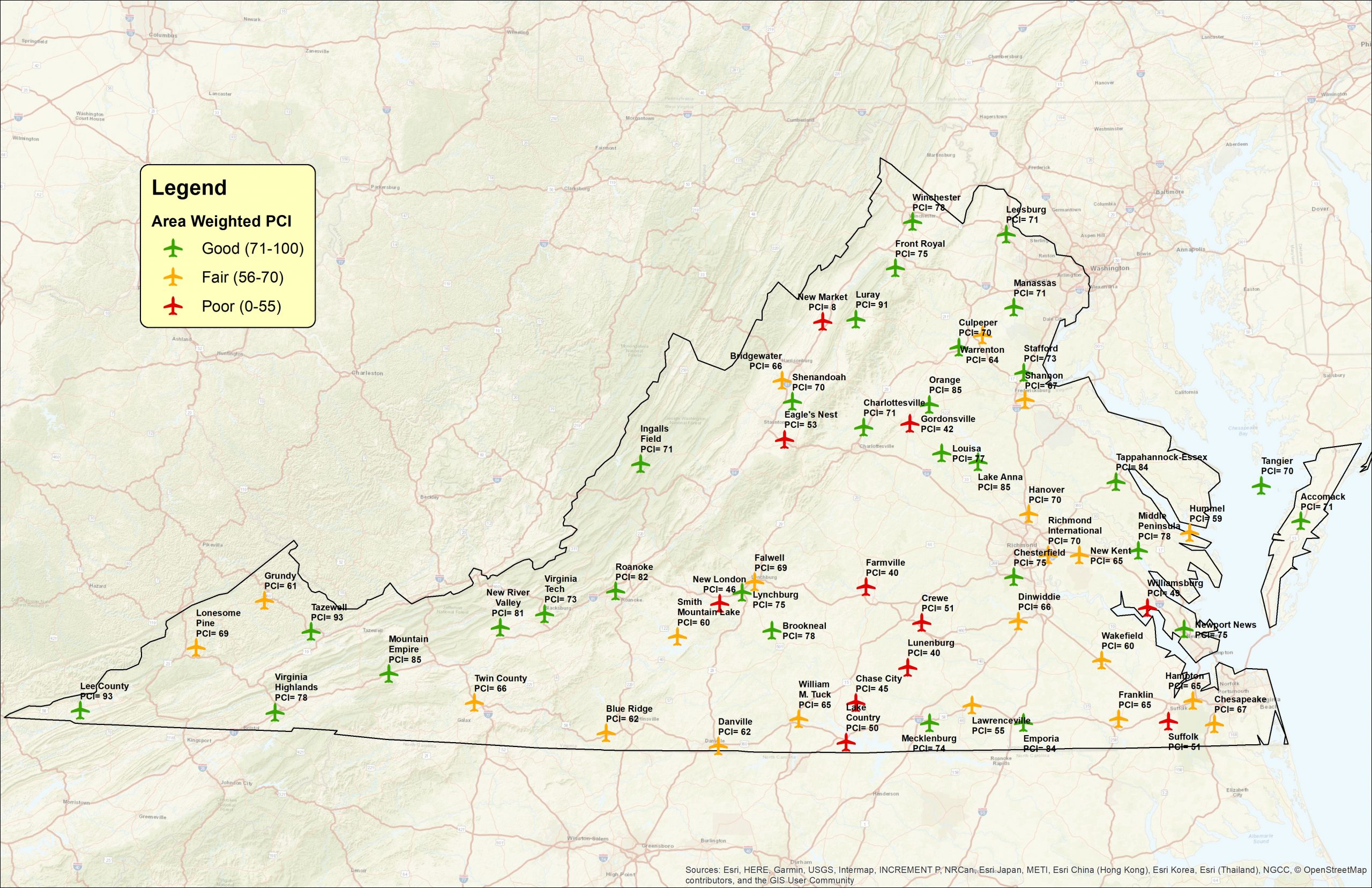Nondestructive Deflection Testing
API performs nondestructive testing using their two Falling Weight Deflectometers (FWD). FWD testing, often referred to as Nondestructive Deflection Testing (NDT), simulates a moving wheel load of either a vehicle for roadway pavements or an aircraft for airport pavements. API also has the ability to perform Heavy Weight Deflectometer (HWD) testing in order to simulate the moving wheel load of New Large Aircraft, such as the Boeing 777, Boeing 747-400, and Airbus A-380.
Pavement Management Systems
API staff are highly qualified, experienced, and certified in conducting and implementing Airport Pavement Management Systems (APMS) and Highway Pavement Management Systems (HPMS) in accordance with ASTM D5340-12 and ASTM D6433-11, respectively. These condition survey procedures were developed at the University of Illinois and the U.S. Army Construction Engineering Research Laboratory (CERL). A condition survey or visual inspection of the pavement network is conducted and all distresses are categorized by type, quantity, and severity. This information is then entered into pavement management software, such as MicroPAVER, and a Pavement Condition Index (PCI) is computed for each pavement section.
Pavement Evaluation and Design
API personnel is also highly qualified in conducting network- and project-level pavement evaluations. A network-level pavement evaluation is conducted at a much broader level than a project-level evaluation since it is usually conducted for an entire pavement network (i.e. airport or roadway network). Project-level pavement evaluations are conducted for a specific entity of a pavement network (i.e. branch or section) and are conducted at a more detailed level. Both network- and project-level pavement evaluations are subdivided into two categories: functional (i.e. visual survey) and structural (i.e. Nondestructive Deflection Testing – NDT) analysis. A functional analysis consists of a visual inspection of the surface condition. Conversely, a structural analysis consists of the evaluation of the load-carrying capacity (i.e. allowable aircraft or vehicle loads) of the pavement cross-section, including the subgrade layer. The functional evaluation will yield a PCI, and the structural evaluation will provide an elastic modulus (e.g. strength) for each pavement layer. These two values are the main components in evaluating the overall condition of a pavement structure.
Research & Training
API conducts pavement-related research and software development projects. Such projects can include the development of pavement structural evaluation software for highways, seaports, and airports and the development of state-of-the-art pavement management systems for airports and highways.
Geographic Information Systems (GIS)
API personnel are highly qualified in implementing Geographic Information Systems (GIS) for pavement networks. A GIS graphically displays information contained in a pavement database. A pavement network drawing (e.g. AutoCAD) for a roadway system or an airport is linked to the database information. Values for each database field, such as PCI, distress types and severities, surface type, age, and rehabilitation options, can be displayed in a color-coded map. Furthermore, additional information such as elastic moduli and construction phasing can also be linked to the GIS.
Asset Management
API can provide assistance with all of your roadway, airport, and port asset management needs. We can provide automated data collection for all of the assets for these agencies, including pavements and other right-of-way assets along roadways. Our experience with asset management will allow API to develop “Actual Condition Ratings” for all types of assets so that your agency can priorities all maintenance and repair needs for your assets.
Expert Witness
API has extensive forensic analysis for all of your pavements – where distresses have occurred just after construction or where the pavements may have failed prematurely – well before the end of their design life. We will collect the data this is required to determine the causes of the premature failure or early-age distresses that have occurred shortly after construction. We also have experience with expert witness testimony that has allowed one of the northeastern states to defend the use of damage assessments for utility cuts that shortened the service design life of roadways and streets.





